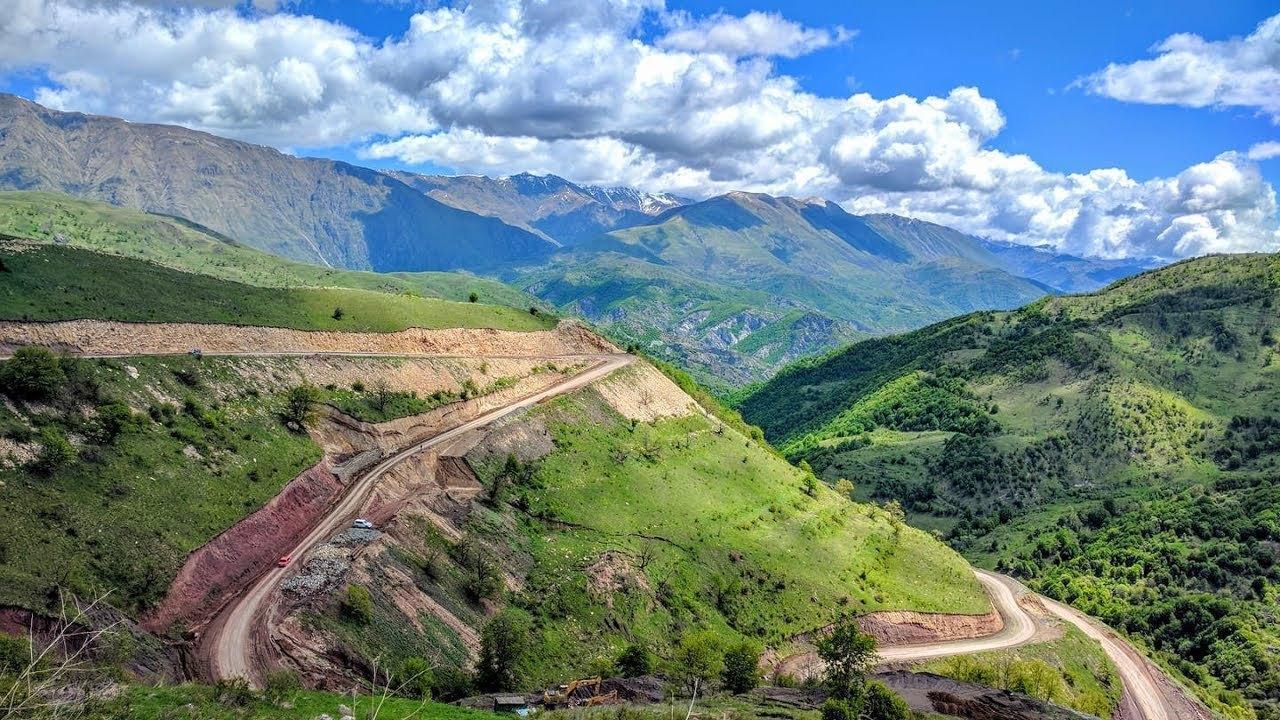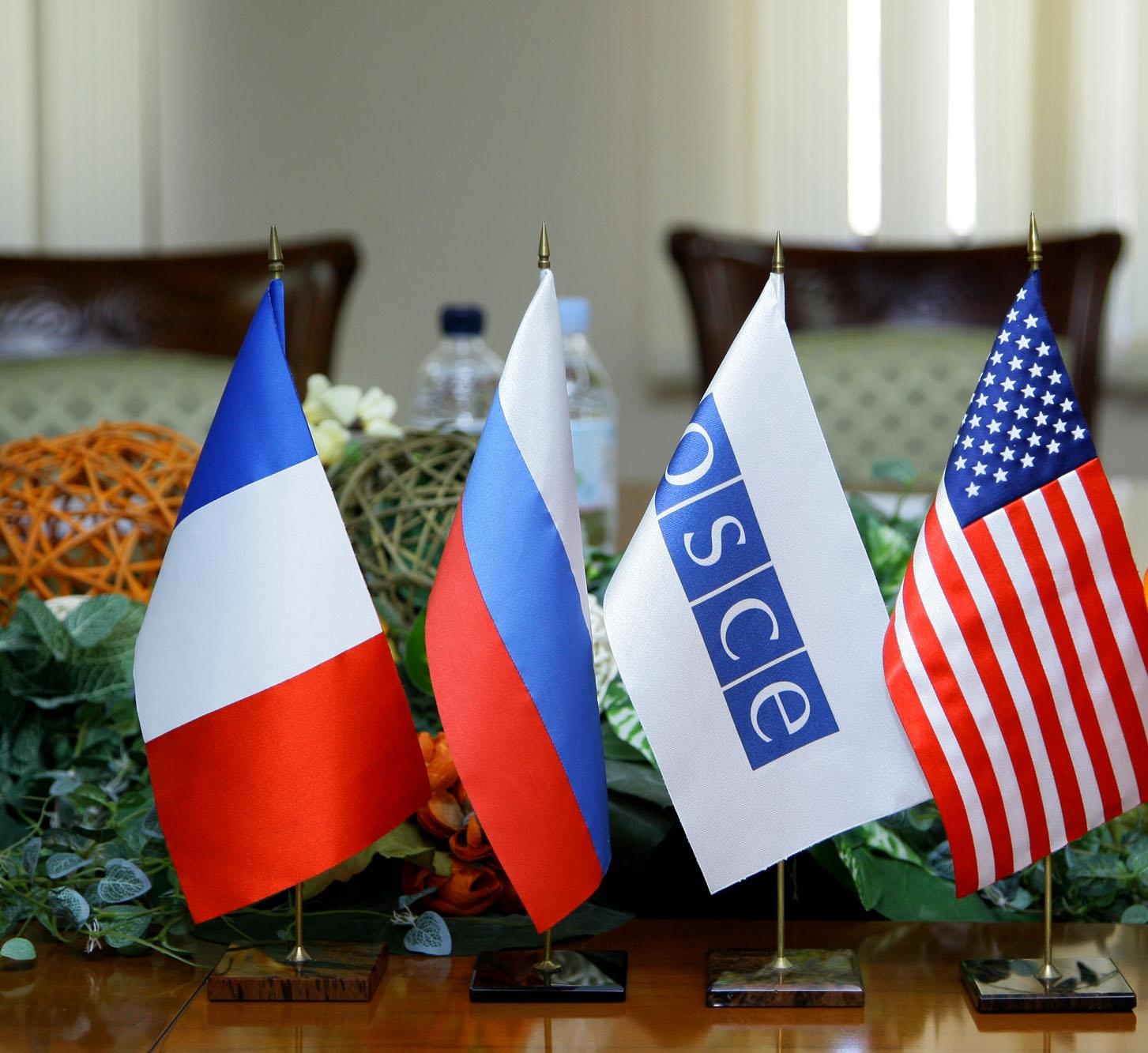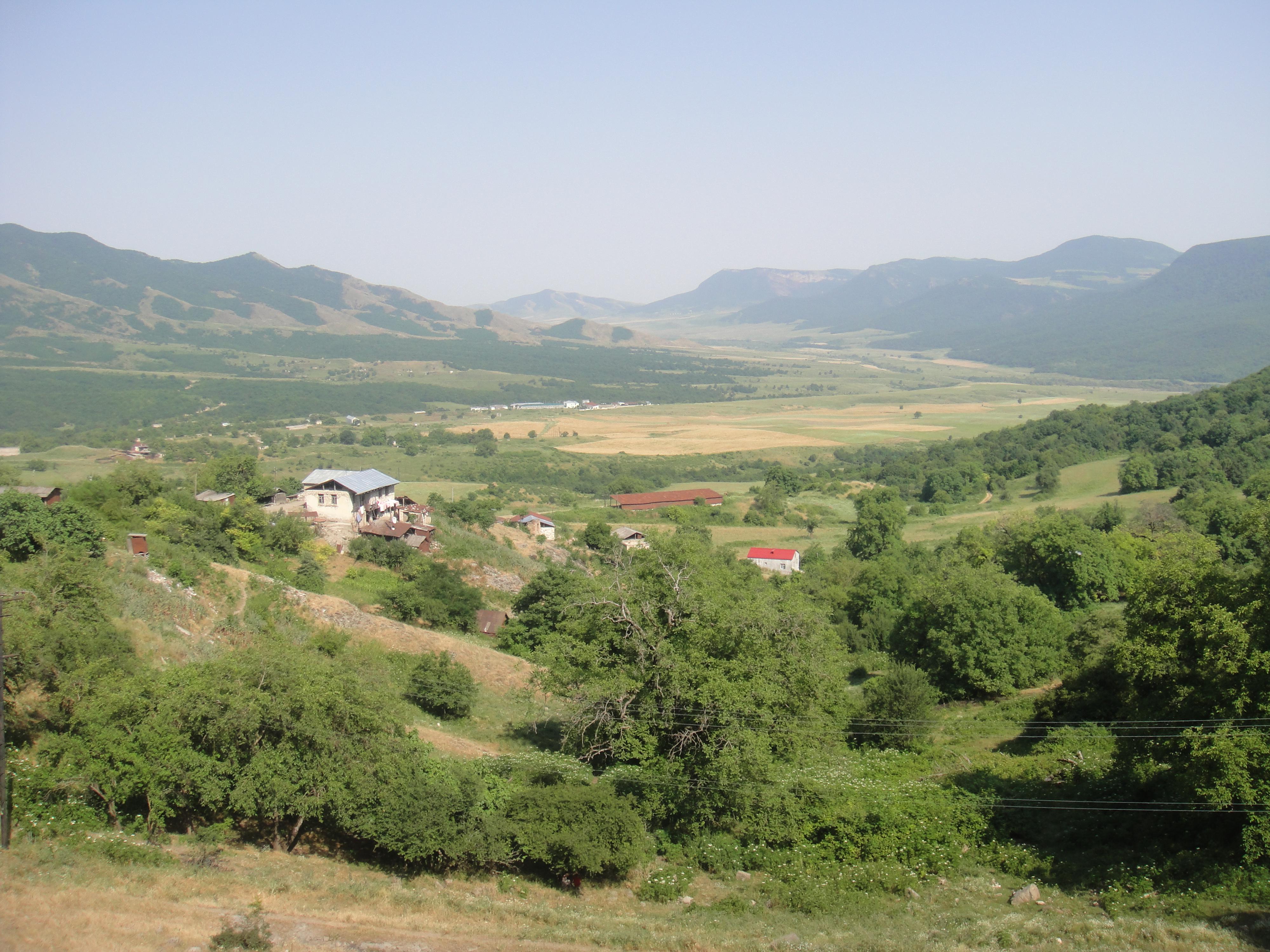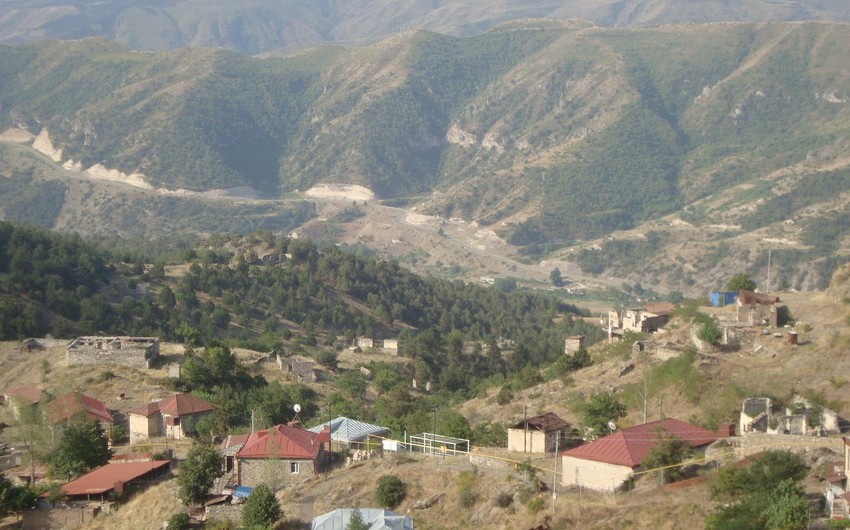The center for social research surveyed the population on the joint residence of Armenians and Azerbaijanis and the likelihood of a hostilities' resumption. The survey involved 603 randomly selected respondents.
The majority of respondents (66.2%) believe that Azerbaijanis and Armenians' joint residence in Karabakh will never be possible, and 19.4% think that it will be possible in a few years. Only 4.8% of respondents believe that cohabitation is likely soon. While the sample can not be considered entirely representative (only 603 people), it is unnecessary to turn a blind eye to this information. Rauf Rajabov, a well-known political scientist, orientalist, and participant of the first Karabakh war, shared his thoughts on what to do to restore trust between the two communities of Nagorno-Karabakh and how to ensure peaceful coexistence of Armenians and Azerbaijanis there.
-Once, there was a debate in society about whether people's diplomacy between Azerbaijanis and Armenians is necessary since our lands are under Armenian occupation. Azerbaijanis have been subjected to ethnic cleansing. However, now, it is clear that there is nothing to argue about, and this time has come. But despite the discussions at that time, you started and completed this work successfully. Please tell us about the regional projects you were implementing and their current relevance.
- The hot phase of the Karabakh conflict settlement, as President of our country Ilham Aliyev noted, is already history. The military confrontation between Armenia and Azerbaijan has come to an end. Today there is already a question of cohabitation of two communities of Nagorno – Karabakh-Azerbaijani and Armenian. In the days of Azerbaijan's national leader Heydar Aliyev and in subsequent years, we declared that Karabakh's Armenian community is a part of Azerbaijan, and Armenians are our citizens. And if so, obviously, it is necessary to build normal relations with them. They must be integrated into the life of society. I deliberately leave out economic and military-political issues. Others are engaged in them. First of all, I will speak about the humanitarian dimension of the values that we must restore. Unfortunately, the war has destroyed our interethnic, inter-confessional, spiritual, moral, and ethical values. Nevertheless, back in 2007, we thought about how we would restore them.

We have created a regional team consisting of historians of the South Caucasus countries-Azerbaijan, Armenia and Georgia, which are international law subjects. In addition to me, our group included well–known historians and outside Azerbaijan-professors Rauf Huseynzade, Aydin Aslanov, who was an expert of the Council of Europe for many years. Together with our Armenian and Georgian colleagues, during the five years of implementing this project, we have created books that, I am not afraid to say, are very important for solving the problem of living together between Armenians and Azerbaijanis. The project was completed, but the five books. Essays on the history of South Caucasus countries", "Cross-analysis "Essays on the history of the countries of the South Caucasus," "Positive examples from the coexistence of history of the peoples and countries of the South Caucasus" (in Russian and English languages), "History and identity: the South Caucasus and other regions in transition" (in Russian and English) and "Cross-analysis of school textbooks of the South Caucasus countries" - remain popular. These books spoke to a wide range of readers. The first duty is to representatives of civil society institutions, University and academic circles, government agencies, the youth of the South Caucasus countries, and international organizations dealing with establishing peace and cooperation between peoples. It is no coincidence that in several state Universities in Armenia and Georgia, the books we have prepared are used as optional textbooks.
The book "Cross-analysis of essays on the history of the countries of the South Caucasus" was based on the study of history textbooks for grades 5 - 12 of schools in these three countries to consider how they reflect the image of the enemy, how he entered our daily life, in our minds. In the analysis, special attention was paid to how observed in the presentation of the principle of tolerance of the peoples in question, whether the authors are far from science mythmaking, present, unfortunately, in certain societies, the slip elements of enmity and hatred in the lyrics, etc.
As members of the European Association of History Educators "EuroClio," with which we also implemented one of our projects, we conducted training, seminars, master classes on innovative methods of historical research in Baku and the regions of Bilasuvar and Sumgayit. It was important not only for the teachers but also for the parents and the children themselves, who discussed resolving the Karabakh conflict in their families.

Naturally, historians may have different historical approaches, but it was necessary to know each other's views because we were enemies at that time. But we cannot remain in this state, figuratively speaking, and tomorrow. "Why?" they will ask me. I'll answer it. Because we need to transform our enemy at least into an enemy, and then it would be good to turn into a good neighbor. It requires time, specific approaches, and appropriate tools that have made it possible to implement this. I call them the five-B principle because they all start with that letter. It is a mutual benefit, mutual dependence, complementarity, will, and choice. We live in the same region, and we must complement each other to benefit our countries and our peoples. Both the Armenians in Armenia and the Armenians of Nagorno-Karabakh today face a choice to accept or not these principles. To do this, of course, you need to have the will and choice.
The very post-conflict period has come, which our projects were aimed at. Today they are especially needed because they contain instruments to ensure the joint residence of Azerbaijanis and Armenians in our country.
-At the time, I got acquainted with these books. It seems to me that, based on today's realities, there is an urgent need for their publication in the Azerbaijani language and the Armenian language.
It is undoubtedly necessary, but you need a severe financial resource for such work, as you understand. If it shows up, it'll be great.
- Let's go back to the projects you mentioned. What, in your opinion, was the coefficient of their efficiency? After all, as today's post-war events show, there has been no change in the Armenian society's collective consciousness.
I want to draw your attention that many projects implemented in the South Caucasus were aimed at convincing the Azerbaijani society that the conflict has three sides - Azerbaijan, Armenia, and Nagorno-Karabakh. We saw a different configuration – two communities of Nagorno-Karabakh of Azerbaijan and two international law-Azerbaijan and Armenia subjects, and negotiations and people's diplomacy should be conducted between Azerbaijan and Armenia. There was no split between the authorities of our country and civil society on this issue. We did not allow the imposition of a trilateral format, behind which the idea of recognizing the independence of Nagorno-Karabakh was visible. As a result, the Armenian society realized that no matter who is in power in Azerbaijan, the issue of independence of Nagorno-Karabakh will never be considered.

Our joint projects with Armenia and Georgia conveyed this message to everyone, dispelling the Armenian public's hopes for the independence of Nagorno-Karabakh. We have laid the first seeds of the possibility of living together between the two peoples in the future. As for the fact that the Armenian society has not changed, it could not change. Why? Yes, because the Armenians were in a state of euphoria, felt so-called winners, and did not see any prospects for the region's future. In Armenia, only a few experts, political scientists, public figures, representatives of the scientific elite, and journalists understood that a regional approach was needed to think about a regional vision. It was due to these personalities that we were able to implement our projects there. For example, Stepan Grigoryan, who heads the center for globalization and regional security, speaking at Baku conferences, demonstrated an understanding that the future is laid today and that it is impossible to live in the past. Our society was focused on the future. President Ilham Aliyev recently outlined these contours very clearly and pragmatically, defining the platform of six - Azerbaijan, Turkey, Russia, Armenia, Georgia, and Iran.
- Reconciliation is a mutual process, and it is a road towards each other.
You are right. Now a lot will depend on us because we will be able to build bridges of trust. I see two tracks. Track N1 – Azerbaijan-Armenia, track N2 - Armenian and Azerbaijani communities of Nagorno-Karabakh. Today, one of the priority tasks is establishing confidence-building measures between our country's Armenian citizens and us—one more thing to keep in mind. Of Azerbaijan's 125 electoral districts, two – Khankendi and Shusha-are located in Nagorno-Karabakh. It is now necessary to keep in mind that in all upcoming elections, representatives of these districts will elect their deputies to the Milli Majlis. Both the head of state and the Azerbaijani Foreign Ministry always state the possibilities of peaceful coexistence in the region.
- If it takes years to build such bridges of trust, what do you think should be done now?
People's diplomacy methods are useful because they help get rid of the enemy's image, destroy myths, and break stereotypes. The experience that we have gained in implementing the projects, which I have already mentioned, can be extrapolated to the current situation right now. The main thing that it should rely on is the moral values that have always been characteristic of the ethnic groups of the Caucasus and have perfectly manifested themselves in the communal living of our two peoples. It is mutual respect, honor, dignity, reconciliation, etc. History shows that wars have always existed, and not only between Azerbaijanis and Armenians but also between Georgians and Armenians, between Ingush and Ossetians. Unfortunately, there can be hundreds of examples. But the peoples must find the strength to go to reconciliation, to be able to live in peace.
So what should we do today to break the ice of distrust?
I am sure of one thing: that our humanitarian projects should be financed only by our country. Because if foreign funds do this, they will try to promote the idea of recognizing the status of Nagorno-Karabakh through our projects. And people's diplomacy is a factor in promoting our national interests. I propose to create a state committee on the humanitarian dimension with working groups in various areas that will deal with the reconciliation of the two communities in Nagorno-Karabakh. And we have enough professionals, specialists in this field. Yes, we have a Council for state support of NGOs under the President of Azerbaijan. But it has many directions, and it is not a specialized body. What we are talking about now requires the unification of all forces in one fist. And I am sure that our civil society will successfully cope with this task.


 https://images.report.az/photo/35ad413b-7d6e-3820-800b-984793b67162.jpg
https://images.report.az/photo/35ad413b-7d6e-3820-800b-984793b67162.jpg

